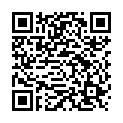|
|
|
| Module code: MAM_24_PE_2.05.BWT |
|
3V+2P (5 hours per week) |
|
5 |
| Semester: 2 |
| Mandatory course: yes |
Language of instruction:
German |
Assessment:
Written exam 120 min.
Lab project
[updated 04.11.2020]
|
DFMME-2b2 (P610-0451) Mechanical Engineering, Master, ASPO 01.10.2024
, semester 2, mandatory course, Specialization Product Development
MAM_19_PE_2.05.BWT (P241-0013, P241-0014) Engineering and Management, Master, ASPO 01.10.2019
, semester 2, mandatory course, Specialization Product Development
MAM_24_PE_2.05.BWT Engineering and Management, Master, SO 01.10.2024
, semester 2, mandatory course, Specialization Product Development
|
75 class hours (= 56.25 clock hours) over a 15-week period.
The total student study time is 150 hours (equivalent to 5 ECTS credits).
There are therefore 93.75 hours available for class preparation and follow-up work and exam preparation.
|
Recommended prerequisites (modules):
None.
|
Recommended as prerequisite for:
|
Module coordinator:
Prof. Dr. Andrea Bohn |
Lecturer: Prof. Dr. Andrea Bohn
[updated 29.10.2023]
|
Learning outcomes:
After successfully completing this module, students will be able to generate the motions of working organs, tools and processed goods under consideration of technological requirements and to evaluate them with regard to various criteria (acceleration, driving forces, vibration behavior). They will be able to design (mechatronic) solutions for the implementation of given motions.
They will be able to analyze a gearbox and be familiar with the key parameters and design criteria. They will be able to calculate essential components and check them for strength.
[updated 29.08.2025]
|
Module content:
Lecture:
Creating models
- Basics
Motion design
- Modeling motion systems
Gearbox analysis
- Analysis and calculation
Lab/computer lab:
- Introduction to MOCAD
- Assembly and analysis of a gearbox
- Exercises for designing and dimensioning motion systems on laboratory test benches
[updated 29.08.2025]
|
Teaching methods/Media:
Lecture with integrated tasks and exercises, laboratory test benches with real gear assemblies
[updated 29.08.2025]
|
Recommended or required reading:
/1/ Fricke, A.; Günzel, D.; Schaeffer, T.: Bewegungstechnik – Konzipieren und Auslegen von mechanischen Getrieben.
3. überarbeitete Auflage. München: Carl Hanser Verlag. 2021
/2/ VDI 2143, Blatt 1: Bewegungsgesetze für Kurvengetriebe. Berlin: Beuth-Verlag 1980 (und Entwurf 2023)
/3/ VDI 2149, Blätter 1 und 2: Getriebedynamik. Berlin: Beuth-Verlag 2008 bzw. 2011
/4/ Dresig, H.; Vul‘fson, I.I.: Dynamik der Mechanismen. Wien: Springer-Verlag. 2013
/5/ Spura, C.; Fleischer, B.; Herbert Wittel, H.; Dieter Jannasch, D.: Rohloff/Matek Maschinenelemente. Springer Vieweg
Verlag, akt. Auflage
[updated 29.08.2025]
|


